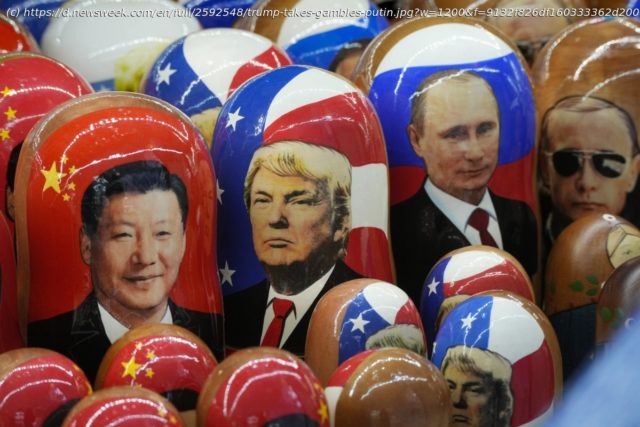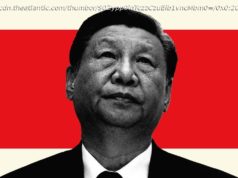Trump’s overtures to Putin have prompted speculation about a possible political thaw at Beijing’s expense.
Former U.S. President Richard Nixon famously reconciled with China’s Communist leader Mao Zedong in a process that shut out the Soviet Union at the height of the Cold War and deepened a Sino-Soviet split.
U.S.-Russia talks in Riyadh this week, aimed at ending Russia’s war in Ukraine, have brought speculation that President Donald Trump could be orchestrating a „reverse Nixon“ that might pull Russia away from China—which America has made clear it sees as its biggest long-term adversary.
But dividing Moscow and Beijing would prove a mammoth task, experts on the subject say.Imperial Scars
Nixon, advised by Henry Kissinger, capitalized on existing fractures between leaders in China and Russia, created by ideological differences and territorial skirmishes. Today, the neighbors are self-described „no limits“ partners, with the former accused by critics of aiding the latter by offsetting its losses in oil and gas sales to Europe, and by not curbing the flow of military-use materials that end up on the battlefields in Ukraine.
The quasi-alliance constructed in over a decade by the personal connections between President Vladimir Putin and Chinese counterpart Xi Jinping is borne out by record-high trade volumes and mutual political support. China has refused to label Russia’s invasion as such and has censored anti-war sentiment at home.
Yet there are signs that not all in Russia are completely comfortable with what may be becoming an imbalanced relationship.
Xi may be frustrating Putin by holding out for more favorable terms on a major natural gas pipeline to China, a project that could secure Russian energy exports for decades. Meanwhile, in China’s increasingly insular online environment, Chinese nationalists are openly complaining about the 19th century loss of territory in what is now Russia’s Far East.
„I do believe there is a possibility of the United States peeling Moscow away from Beijing. Moscow and Washington share a distrust of Beijing. Beijing has territorial designs on Russia—the United States does not“, said Isaac Stone Fish, CEO of Strategy Risks, a China-focused analytics firm in New York.
Although highly unlikely to be the primary driver behind the latest U.S.-Russia opening, it represents „the most positive potential outcome“, Fish told Newsweek.






